Edward Feser's Blog, page 7
December 31, 2024
The thread you’ve been waiting for
 Let’s closeout 2024 and begin 2025 with a long overdue open thread. Now’s your chance to get that otherwise off-topiccomment posted at last. From platetectonics to Hooked on Phonics, from substanceabuse to substance dualism, from Thomism to Tom Tom Club, everything is on-topic. Trolls still not welcome, though, sokeep it sane and civil.
Let’s closeout 2024 and begin 2025 with a long overdue open thread. Now’s your chance to get that otherwise off-topiccomment posted at last. From platetectonics to Hooked on Phonics, from substanceabuse to substance dualism, from Thomism to Tom Tom Club, everything is on-topic. Trolls still not welcome, though, sokeep it sane and civil.Previous openthreads archived here.
December 28, 2024
Boczar on Immortal Souls
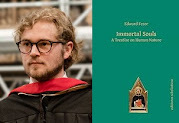 At The Review of Metaphysics, philosopherJack Boczar kindly reviewsmy book
ImmortalSouls: A Treatise on Human Nature
. From the review:
At The Review of Metaphysics, philosopherJack Boczar kindly reviewsmy book
ImmortalSouls: A Treatise on Human Nature
. From the review:“The book's title is an homage to David Hume, and Feser hascertainly taken Hume to task, giving cogent arguments for the reality of theself (chapter 2), freedom of the will (chapter 4), immateriality of theintellect (chapter 8), and more…
It is with contemporary developments in the philosophy ofmind where Feser is at his best, and readers will not be disappointed with hiscritique of positions such as Buddhism's no-self doctrine (chapter 2)…
Feser again is at his best in cogently establishing theimmateriality of the intellect. He putsforth various arguments. His mostpowerful argument is a modified version of James Ross's argument from theindeterminacy of the physical (chapter 8)… One of the unique contributions thatFeser makes to contemporary literature is his defense of the immateriality ofthe intellect from its simplicity (chapter 8). Readers should pay close attention to thispowerful argument.”
End quote. Boczar alsooffers two lines of criticism. First, hesuggests that I could say more to explain how disembodied human souls areindividuated after death. He notes thatI hold, as Aquinas does, that the fact that they were associated with distinctbodies before death issufficient to individuate them. However,says Boczar, “this should be spelled out more, as it is well known that the LatinAverroists at Paris held that the individual ceases to exist after death, eventhough the intellect is immaterial and immortal.”
This is aview Aquinas addressed in several places, and the philosophical anthropology heappealed to in answering it is essentially the same as the one I defend in thebook. Start with the fact that any twohuman beings, such as Socrates and Plato, are distinct substances of the kind rational animal. Part of what this entails is that they arenot fewer than two substances. When Socrates walks or talks and Plato walksor talks, there are two numerically distinct things carrying out twonumerically distinct activities. Thereis Socrates and his walking, and Plato and his walking. And there is Socrates and his talking, andPlato and his talking. There is notsomehow one substance here that is doing all the walking and talking. We know this from experience, as surely as weknow from experience that two trees or two stones are numerically distinct thingswith numerically distinct properties.
Another partof what it entails is that Socrates and Plato are not more than two substances. With Socrates, for example, it is one and the same substance that bothwalks and talks. It is not that Socratesis an aggregate of two substances, one which does the walking and one whichdoes the talking. Now, as a rationalanimal, among the many other things a human being like Socrates does arethinking, willing, seeing, hearing, thirsting, and digesting. And again, it is one and the same substancethat does all of these things. This toowe know from experience, as surely as we know in the case of a tree or a stonethat it is one and the same substance that does the things characteristic ofthe tree and that has the properties characteristic of a stone.
What thesefacts rule out are, first, the Averroist view that it is a single, commonintellectual substance that is really doing all the things of an intellectual kindthat we attribute to different human beings; and, second, the Cartesian viewthat there are, in the case of any human being, two substances doing what humanbeings do, a res cogitans doing the intellectualthings and a res extensa doing thecorporeal things. Contra the Averroist,there are as many distinct substances with intellects as there are humanbeings. Contra the Cartesian, each of thesesubstances not only does intellectual things but also bodily things likewalking, seeing, and digesting.
Now, onAquinas’s account, matter individuates members of a species, so that the factthat there are distinct bodies associated with different human beings sufficesto make them distinct individual members of the same species rational animal. But because the intellectual powers areincorporeal, each individual member of this particular species can carry onafter the death of the body, as an incomplete substance whose operations are reducedto those of its intellectual powers.
Why, Boczarwonders, wouldn’t the fact that they can carry on after death make them comparableto angels, each of whom is the unique member of its own species? The answer is that it is normal for an angelto be disembodied, but not normal fora human being to be disembodied. Anangelic intellect without a body is nevertheless a complete substance, but ahuman intellect without a body is nota complete substance. Even when itpersists beyond the death of its body, it is by nature ordered to its body, whereas an angelic intellect is in no wayordered to a body.
Boczaroverlooks this natural ordering. Henotes that I hold that “the fact that all human beings start out with distinctbodies is sufficient to individuate them,” but wonders why this would be sufficient. This would indeed be a mystery if the intellect were related to the bodythe way the Cartesian supposes, because that sort of relationship is entirelycontingent. But again, the intellect isnot related to the body in that way. Itis not a complete substance that is only contingently related to (some distinctsubstance with) corporeal powers; rather, the intellect is an incorporeal powerof a substance which in its complete state also has corporeal powers.
The otherpart of Immortal Souls that Boczartakes issue with is my discussion of the fixity of the will after death. Like Aquinas, I argue that while the ultimateend toward which the will is oriented is not fixed while the intellect isembodied, it becomes fixed with the loss of the body at death. Why, Boczar wonders, would it not becomechangeable again when the body is restored at the resurrection?
Here itseems to me that Boczar has not paid sufficient attention to the details of mydiscussion of this issue. As I argue inmy New Blackfriars article “Aquinas on theFixity of the Will After Death” and repeat in chapter 10 of Immortal Souls, it is not embodiment as such that entails the changeabilityof the will. What is going on is,rather, this. An end can be changed onlyby reference to some further end. Forexample, if my goal is to get from Los Angeles to San Francisco as efficientlyas possible and I intend to buy a train ticket in order to realize this end, Imight change my mind and go by airplane instead if I find that that would be amore efficient way to realize it. And ifmy reason for wanting to get to San Francisco is that I believe that anAmerican Catholic Philosophical Association meeting is being held there, Imight change my mind about going to San Francisco if I find out that my beliefwas mistaken and that the meeting is actually going to be in San Diego.
But when wecome to the ultimate end toward whichall my actions are ordered (whatever it might be), that cannot be changed,precisely because it is ultimate. Thereis, in the nature of the case, no higher end by reference to which it might be changed. Now, in the case of an angel, its highest endis fixed immediately after its creation. Its will comes to be ordered most fundamentally to whatever itsintellect first judges to be the highest good, and anything else it might willever afterward will be willed only insofar as it conduces to that perceived highestgood. That perceived highest good cannotitself be changed, because there is nothing higher by reference to which itmight be changed.
The reasonthis does not happen immediately upon the creation of a human being does indeedhave crucially to do with the body, but not quite in the way Boczar (like many otherreaders of Aquinas) supposes. Becausehuman beings are embodied, they, unlike angels, have passions and sensory appetitesthat influence the will in a way that prevents it from becoming fixed on anyparticular end as highest. It is only whenthese passions and sensory appetites disappear with the death of the body thatthe will, now relevantly like that of an angel (insofar as it is free of thesedistracting influences), becomes fixed on a perceived highest end. And as with an angel, once this happens, thereis no way for that end to be changed, for in the nature of the case there is nohigher end by reference to which it might be changed.
As others dowhen first becoming familiar with this position, Boczar wonders why therestoration of the body at the resurrection would not open the door to thisperceived highest end being changed. Themistake they are making is that they suppose that Aquinas’s claim is that, thoughthe will can become fixed on some ultimate end during a human being’s lifetime,the body makes it possible for it to become unfixed from that end and fixedinstead on some other ultimate end. Andin that case, why wouldn’t the restoration of the body allow it once again tobecome unfixed?
But that isnot what is going on at all. It’s notthat, during life, the presence of the body allows the will successively to becomefixed on different ultimate ends. Rather,the presence of the body prevents itfrom ever becoming fixed on anyultimate end. The will, while the bodyis present, is not like an arrow that reaches a target but can somehow beremoved from that target and fired at another. Rather, it is like an arrow that has not yet reached any target atall. The target is reached only atdeath. But it is reached then. That iswhy restoring the body would in no way allow the will to change its ultimateend. It could do so only if the willwere still at that point like an arrow that had not yet reached any target.
To take adifferent analogy, the will before the death of the body is like wet clay thatis being molded into a series of successive shapes but has not yet fixed on anyof them. Death is like the furnace thatdries the clay into some one determinate shape, such as a pot. Once that happens, the clay cannot ever againtake on any other shape. And in the sameway, once the will has at last fixed on some ultimate end at death, it cannotbecome fixed on another, no matter what happens. To ask “Why wouldn’t the restoration of thebody allow the ultimate end to be changed?” is like asking “Why wouldn’t pouringsome water into the pot make the clay once again malleable?”
This, in anyevent, is what I would say is the correct way to understand Aquinas’s position,or at least what he should say giventhe relevant principles he is reasoning from. Naturally, there is much more to be said, and I address the subject indetail in Immortal Souls (and I havemore to say about the exegetical issues surrounding the relevant texts fromAquinas in the New Blackfriarsarticle).
December 18, 2024
Gilson on philosophy and its history
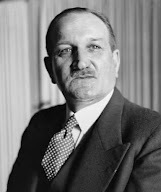 You mightsuppose from the title of Etienne Gilson’s
TheUnity of Philosophical Experience
that it is a book about philosophyin general. And ultimately it is. But its bulk is devoted to detailed accountsof the ideas of thinkers Gilson regards as having gotten things badly wrong,such as Abelard, Ockham, Descartes, Malebranche, Kant, and Comte. There is relatively little about thinkersGilson regards as having gotten things largely right, such as Aristotle andAquinas. This might seem odd. For the sympathetic reader might suppose thatthe experience of philosophers like Aristotle and Aquinas should surely countas least as much as (indeed, more than) that of more wayward thinkers, whenelucidating the nature of philosophy.
You mightsuppose from the title of Etienne Gilson’s
TheUnity of Philosophical Experience
that it is a book about philosophyin general. And ultimately it is. But its bulk is devoted to detailed accountsof the ideas of thinkers Gilson regards as having gotten things badly wrong,such as Abelard, Ockham, Descartes, Malebranche, Kant, and Comte. There is relatively little about thinkersGilson regards as having gotten things largely right, such as Aristotle andAquinas. This might seem odd. For the sympathetic reader might suppose thatthe experience of philosophers like Aristotle and Aquinas should surely countas least as much as (indeed, more than) that of more wayward thinkers, whenelucidating the nature of philosophy.But such areaction would reflect a misunderstanding of the book’s title. “Philosophical experience,” as Gilson usesthe phrase, has nothing to do with some way of life or psychological profile thatphilosophers share in common. He’s notconcerned with “what it’s like to be a philosopher,” as Thomas Nagel might say. A clue to what he does mean is provided by the titles he gives the book’s first threeparts, viz. “The Medieval Experiment,” “The Cartesian Experiment,” and “TheModern Experiment.” The “experience” referredto in Gilson’s title is analogous to the experience on which empirical sciencerests. It has to do with a kind of experimentation to which certainphilosophical ideas have, in a way, been put.
What way isthat? Gilson holds that “the history of philosophyis to the philosopher what his laboratory is to the scientist” (p. 95). The theories of empirical science entailpredictions which can be tested by observation. By contrast, metaphysical theories, which concern matters that transcendwhat can be observed, cannot be tested that way. All the same, such theories also have theirentailments, and if a metaphysical theory leads to conclusions that areincoherent or otherwise known to be false, then we have grounds for rejectingit. Now, given the limitations of theindividual human intellect, not all the implications of a metaphysical theoryare ever worked out or understood by the individual thinker who came up withit. We need to look to what hissuccessors had to say in developing further the thinker’s premises, taking themin new directions, criticizing them, and so on. Hence it is to the history of philosophy, rather than to the laboratory,that we must look in order to test metaphysical theories. The “experiments” to which such a theory is putare, essentially, embodied in the historical record of what happened as thetheory was developed and criticized in this way.
What aboutthe “unity” referred to by Gilson in his title? Gilson is speaking here of the way that, as he argues, a number ofphilosophical theories from the Middle Ages to the present have made a similartype of opening move and been led thereby into the same problematicoutcome. The opening move in question isessentially that of trying to transform metaphysical questions into questionsof some other type. The problematicoutcome is skepticism about metaphysics. But this skepticism always turns out to be intellectuallyunsatisfactory, so that it is always followed by a renewed attempt atmetaphysics – but often one that makes a new opening move of the same generaltype, so that the cycle begins again. Thelesson this series of experiments teaches us is that it is a mistake to make anopening move of the type in question.
Examples ofthis sort of move that are discussed by Gilson include the attempt to reducemetaphysical questions to questions of logic, which Gilson associates withPeter Abelard. There is also the attemptto resolve metaphysical questions by way of theology, which Gilson associateswith thinkers like Bonaventure. Ockham,Gilson argues, essentially tries to resolve metaphysical questions by appeal tohuman psychology. Descartes does so bymodeling all knowledge on mathematics. Kant, Gilson says, modeled it on Newtonian physics, and Comte on sociology. Such views (which Gilson calls logicism, theologism, psychologism,mathematicism, physicism, and sociologism,respectively) essentially try to turn metaphysics into something else. They do so by taking one part of reality (such as mathematical truth, or physical reality,or the human mind) and modeling the wholeof reality on it.
Butmetaphysics by its nature is concerned precisely with the whole – with being qua being – so that attempts to makeit about a part of the whole, thereby distorting it, will inevitably fail. Critics of metaphysics conclude from thisseries of failures that there is something wrong with metaphysics itself, butthis is a non sequitur. For the failuresreflect the distortion of metaphysics rather than anything in the nature of metaphysicsitself. And that metaphysical inquirykeeps reviving even in the wake of these failures reflects the fact that thereare real questions that it alone can address – questions that go deeper thanthose addressed by the other branches of human knowledge that too manymetaphysicians have mistakenly tried to model metaphysics on.
This is thecontext in which Gilson makes his famous remark that “philosophy always buriesits undertakers” (p. 246). This, hesuggests, is a “law” established by the philosophical “experiments” he hasdescribed in the book (in a way analogous to the manner in which physical lawsare established by physical experiment). And there are further laws that are so established, such as the law that“by his very nature, man is a metaphysical animal” (p. 248) and the law that “asmetaphysics aims at transcending all particular knowledge, no particularscience is competent either to solve metaphysical problems, or to judge theirmetaphysical solutions” (p. 249). Hetakes “philosophical experience” thereby to have vindicated the approach ofthinkers like Aristotle and Aquinas (though he emphasizes that this does notentail that they have given us the last word).
Gilson’saccount suggests the following analogy (mine, not his). Heresy, in the strict theological sense,involves plucking some element of Christian doctrine out from its largerdogmatic context and thereby distorting it. (The word “heresy” comes from the Greek hairesis, which connotes “taking” or “choice.”) For example, monophysitism so emphasizesChrist’s divinity that it destroys his humanity, thereby distorting the thesisthat Jesus is God. Modalism soemphasizes divine unity that it destroys the distinctness of the three divinePersons, thereby distorting the doctrine of the Trinity. And so on. The metaphysical errors Gilson describes are analogous to this, insofaras they involve “taking” or “choosing” some part of reality (mathematics,physics, mind, or whatever) and erroneously modeling the whole on it, therebydistorting both the whole and the part.
We canextend the analogy further. Pope St.Pius X, in Pascendi Dominici Gregis, famouslycharacterized modernism as “the synthesis of all heresies.” Philosophy since the time of Ockham has hadan analogous character, so that it is no accident that most (though, admittedly,not all) of what Gilson recounts in TheUnity of Philosophical Experience occurred after his time, and during thepost-medieval period especially. Modernphilosophy can therefore be characterized as a kind of “synthesis of all metaphysicalerrors.” It has recapitulated errorsseen previously in the history of philosophy (such as in the Pre-Socraticperiod) but ramified and exacerbated them, and in a relatively short historicalperiod. And because the moral andpolitical errors characteristic of the modern world have followed from these metaphysicalerrors, Gilson’s book is a key text for understanding not just modernphilosophy, but modernity in general.
December 16, 2024
Nicholson on Immortal Souls
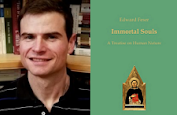 At Catholic World Report, philosopher SamNicholson kindlyreviews my book
ImmortalSouls: A Treatise on Human Nature
. From the review:
At Catholic World Report, philosopher SamNicholson kindlyreviews my book
ImmortalSouls: A Treatise on Human Nature
. From the review:"As its title suggests, ImmortalSouls by Edward Feser provides a robust philosophical defense of theimmortality of the soul. The scope ofthe book reaches far beyond this one topic, however, as Feser methodicallyexposits and defends the entire Aristotelian-Thomist metaphysics of the humanperson, addressing in depth such topics as personal identity, freedom of thewill, perception and cognition, phenomenal consciousness, and artificialintelligence. The result is an extraordinarilycomprehensive and detailed sweep through contemporary philosophy of mind,addressing nearly every major topic of interest. Feser makes a forceful case that Thomismremains a live option, able to resolve many seemingly intractable problems atthe intersection of philosophy and the sciences of cognition…
Immortal Souls covers so much ground, and is so densewith argumentation, it would be impossible to survey every topic it addressesin a short review…
Those who work their way through its five hundred plus pageswill come away with a solid grasp of the current state of play in contemporaryphilosophy of mind, which is a richly interdisciplinary field that incorporatesfindings from psychology and cognitive science in addition to the traditionalcategories of metaphysics and epistemology. Feser displays an impressive breadth ofknowledge in this area, showing himself conversant not only with Thomism andthe analytic tradition, but with recent discussions that draw uponphenomenology and empirical psychology as well."
December 4, 2024
Full interview on Pints with Aquinas
 My recentthree-hour interview with Matt Fradd on Pintswith Aquinas is nowavailable in its entirety at YouTube. The discussion is wide-ranging, covering the current state of the CatholicChurch, papal history, contemporary U.S. politics, atheism and theism, the sexualrevolution and its transformation of the Western world, philosophicalskepticism, artificial intelligence, integralism, and much else.
My recentthree-hour interview with Matt Fradd on Pintswith Aquinas is nowavailable in its entirety at YouTube. The discussion is wide-ranging, covering the current state of the CatholicChurch, papal history, contemporary U.S. politics, atheism and theism, the sexualrevolution and its transformation of the Western world, philosophicalskepticism, artificial intelligence, integralism, and much else.
December 2, 2024
Pints with Aquinas interview (Updated)
 RecentlyMatt Fradd kindly had me on
Pints with Aquinas
fora wide-ranging three-hour interview. At the moment, the full interview is available to members but an excerpt has been posted today atYouTube, wherein Matt and I discuss the current state of the Catholic Church.UPDATE 12/3: Today a second excerpt has been posted at YouTube, wherein Matt and I discuss the question of what would falsify Catholicism.
RecentlyMatt Fradd kindly had me on
Pints with Aquinas
fora wide-ranging three-hour interview. At the moment, the full interview is available to members but an excerpt has been posted today atYouTube, wherein Matt and I discuss the current state of the Catholic Church.UPDATE 12/3: Today a second excerpt has been posted at YouTube, wherein Matt and I discuss the question of what would falsify Catholicism.
Pints with Aquinas interview
 RecentlyMatt Fradd kindly had me on
Pints with Aquinas
fora wide-ranging three-hour interview. At the moment, the full interview is available to members but an excerpt has been posted today atYouTube.
RecentlyMatt Fradd kindly had me on
Pints with Aquinas
fora wide-ranging three-hour interview. At the moment, the full interview is available to members but an excerpt has been posted today atYouTube.
November 27, 2024
Zubia on Hume and liberalism
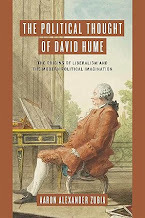 “Hume’s Trojan Horse,” my review of Aaron Alexander Zubia’s new book
ThePolitical Thought of David Hume: The Origins of Liberalism and the ModernPolitical Imagination
, appears in the Fall 2024 issue of the Claremont Review of Books.
“Hume’s Trojan Horse,” my review of Aaron Alexander Zubia’s new book
ThePolitical Thought of David Hume: The Origins of Liberalism and the ModernPolitical Imagination
, appears in the Fall 2024 issue of the Claremont Review of Books.
November 26, 2024
Popper’s via negativa
 Negative theology (also known as apophatic theology) is anapproach to the study of the divine nature that emphasizes that our knowledgeof God is (either largely or wholly, depending on how far one wants to takethis) knowledge of what God is not,rather than what God is. There is aninteresting parallelism between this idea and Karl Popper’s account of thenature of scientific knowledge. I don’tclaim that this necessarily has much if any significance for either theology orthe philosophy of science (and I’m no Popperian in any event), only that theparallels seem real. Make of them whatyou will.
Negative theology (also known as apophatic theology) is anapproach to the study of the divine nature that emphasizes that our knowledgeof God is (either largely or wholly, depending on how far one wants to takethis) knowledge of what God is not,rather than what God is. There is aninteresting parallelism between this idea and Karl Popper’s account of thenature of scientific knowledge. I don’tclaim that this necessarily has much if any significance for either theology orthe philosophy of science (and I’m no Popperian in any event), only that theparallels seem real. Make of them whatyou will.Note first that negative theology is not a kind of atheism, noreven agnosticism as that is usually understood. The negative theologian does not deny that God exists, nor even,necessarily, that we can know that God exists. The claim is rather that God’s essenceor nature (as opposed to his existence) is opaque to us, so that a soundtheology must characterize it mostly or entirely in negative terms.
Maimonides is a famous advocate of this approach. Another is Aquinas, though the apophaticelement of his theology, important as it is, is sometimes overstated. As Aquinas says in De Potentia:
Moreover the idea of negation isalways based on an affirmation: as evinced by the fact that every negativeproposition is proved by an affirmative: wherefore unless the human mind knewsomething positively about God, it would be unable to deny anything about him. And it would know nothing if nothing that itaffirmed about God were positively verified about him. (Question VII, Article5)
All the same, Aquinas emphasizes that because of thedependence of human cognition on the senses, our positive knowledge cannotextend as far as the divine essence. Wecan say that God is not caused, not changing, not in time, notmaterial, and so on, but lack the capacity for much in the way of a positivecharacterization.
Now, Popper famously presents his falsificationist philosophyof science as a response to Hume’s problem of induction. The Humean, on the basis of his empiricistpremises, denies that we can be rationally justified in inferring universallaws from observation of particular cases. Popper agrees with this, but says that it doesn’t matter because scienceis not really concerned with justifying anything in the first place, but ratherwith falsifying claims. We can know what has been proved false, but can never prove any scientificclaim true. Corroborated scientifictheories are those which have not yetbeen proven false, but at some point they too are bound to be falsified andreplaced by other (only tentatively accepted) theories which will themselves eventuallybe falsified.
Popper’sconfinement of certain scientific knowledge to negative claims about thenatural world is analogous to the apophatic theologian’s confinement oftheological knowledge to negative claims about the divine nature. It has a similar source in the idea thatknowledge must be grounded in experience (where the Humean has a much thinnerconception of “experience” than an Aristotle or Aquinas, which is why Humeansare bound to think we can know much less about even the natural world than Aristotleor Aquinas did). Popper also rejectsessentialism, so that he thinks we cannot know the essences of natural phenomena(in a way that is analogous to how Aquinas, though an essentialist, thinks wecannot strictly know the divineessence).
Yet Popperis a realist and an objectivist. He doesnot deny the reality of the natural world or that our cognitive faculties arecapable of making objectively true judgments about it. It’s just that our knowledge of it is largelynegative. This is analogous to how theapophatic theologian does not deny that God exists or that we can know that hedoes, but only that we can have much in the way of positive knowledge of hisnature.
Is there somereason for these parallels betweenPopper’s philosophy of science and negative theology? Or are they merely coincidental? I’m inclined to say that they are notentirely coincidental, though not because either had any direct effect on theother. Rather, as I have indicated,their similarities are perhaps a result of a common foundation in empiricism(or at least, such a foundation is to be found in the Aristotelian style of negativetheology one sees in a thinker like Aquinas). Though, an important difference between the views also has the samefoundation.
What I meanis this. Aquinas’s negative theology isgrounded in his Aristotelian brand of empiricism. Because the empirical world is the natural subjectmatter of human cognition, we can’t form much in the way of a positive conceptionof what lies beyond it. All the same,the Aristotelian brand of empiricismhas a much more ambitious conception of what the senses can reveal about thenatural world than modern, post-Lockeanempiricism does. It allows, for example,that the intellect can abstract the essences of physical things of a certainkind from observations of particular instances of that kind. This makes possible a more robust positive knowledgeof the natural world than is possible on Popper’s account.
Popperhimself was certainly critical of certain aspects of modern empiricism, but henevertheless worked within its broad, very modest conception (and, from theAristotelian point of view, excessively modest conception) of what experiencecould reveal about nature. Hence, wherethe Aristotelian negative theologian would say that we can have little or nopositive knowledge of the divine essence but can have such knowledge about the naturalworld, Popper denies we can have it even about the natural world. In both cases the view is (or at leastsometimes is, in the case of negative theology) grounded in a view about thelimits of empirically grounded knowledge, but in Popper’s case the limits aremore severe.
Related posts:
Tugwellon St. Albert on negative theology
November 18, 2024
Advice to Christian Philosophers
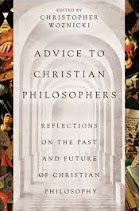 My essay “FromJustin Martyr to Alvin Plantinga and Back Again: Advice from the FirstChristian Philosopher” appears in the anthology
Advice to Christian Philosophers:Reflections on the Past and Future of Christian Philosophy
, edited by (andwith an essay by) Christopher Woznicki. It’sa volume of articles inspired by Alvin Plantinga’s famous essay “Advice toChristian Philosophers,” which is included. Other contributors include Charity Anderson, Michael Austin, WilliamLane Craig, Gregory Ganssle, Marina Garner, Paul Gould, Adam Green, Ross Inman,J. P. Moreland, Dolores Morris, Meghan Page, Timothy Pawl, Tim Pickavance,Joshua Rasmussen, Yoon Shin, Peter van Inwagen, Thomas Ward, Greg Welty, EricYang, and Linda Zagzebski. Moreinformation here.
My essay “FromJustin Martyr to Alvin Plantinga and Back Again: Advice from the FirstChristian Philosopher” appears in the anthology
Advice to Christian Philosophers:Reflections on the Past and Future of Christian Philosophy
, edited by (andwith an essay by) Christopher Woznicki. It’sa volume of articles inspired by Alvin Plantinga’s famous essay “Advice toChristian Philosophers,” which is included. Other contributors include Charity Anderson, Michael Austin, WilliamLane Craig, Gregory Ganssle, Marina Garner, Paul Gould, Adam Green, Ross Inman,J. P. Moreland, Dolores Morris, Meghan Page, Timothy Pawl, Tim Pickavance,Joshua Rasmussen, Yoon Shin, Peter van Inwagen, Thomas Ward, Greg Welty, EricYang, and Linda Zagzebski. Moreinformation here.
Edward Feser's Blog
- Edward Feser's profile
- 335 followers



